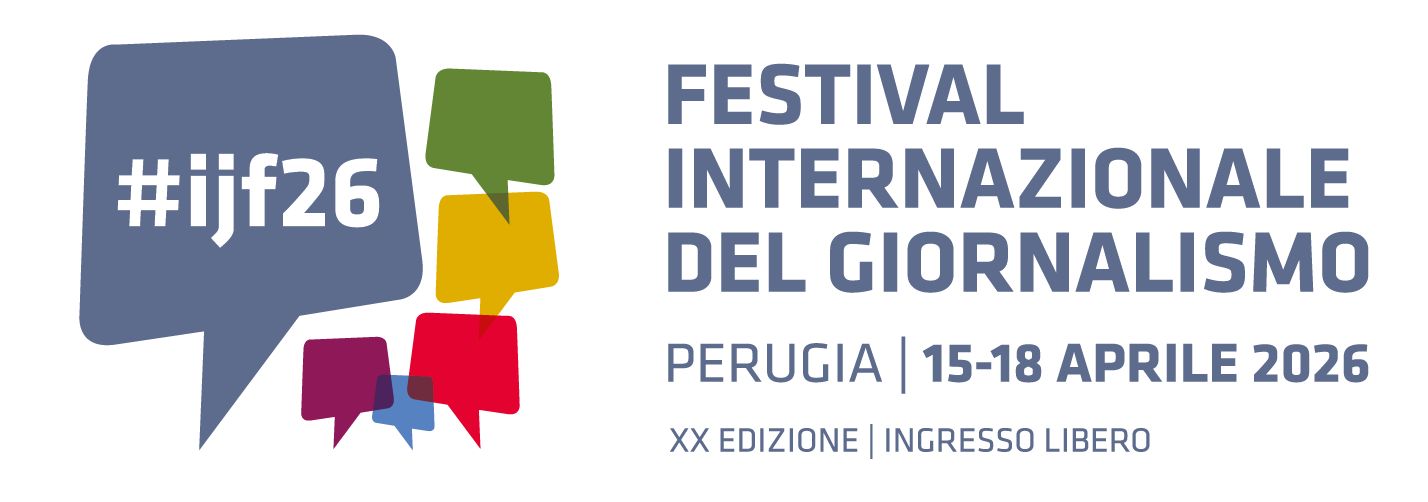What is the future of news? How journalism is going to change in the nearest future? What challenges media industry faces in the era of social networks? Dialogues on future of news were in the focus during the panel discussion with Josh Young, The Huffington Post, Megan Garber and Justin Peters, Columbia Journalism Review the second day of the International Journalism Festival, Perugia.
Media industry shifts from the mainstream towards personalization. Blogs and Social networks more and more become the news source. And major media outlets change under the impact of the direct interaction with its audience.
According to Megan Garber, the audience today is not just passive readers, they are users with their own view and personal opinion. They share their thought and sharpen new image of the information.
"We even ask our readers or propose headlines for our stories, when we are stuck with it ourselves - Josh Young says. - Sometimes readers' headlines are goos, sometimes they are awesome."
Such an interaction, according to panelists, gives more chance to choose, more voices to be heard.
Another interesting point is how this voices impact the online media. Readers comments issue was the most discussed one during the session.
"Comments reflect the nations - says Justin Peters. - If readers are americans they can leave some rude comments, if they are italians they would probably talk off the topic, englishmen would speak about the weather".
This gives opportunity to have more interaction among nations. People can see what other people think about their countries, what is the image created.
Comments and the number of clicks now set the new values, indicate the rating of the journalistic stories. According to Adrian Michaels, there is a phenomena then readers prefer entertainment news online, whereas from the newspapers they had a tendency towards serious and quality stories.
Another grand tension if social networks. Huffington Post editors, for instance, more and more use Twitter and other social networks as a news source. They publish stories on the most discussed topics on social networks or some news from the celebrities Twitter feeds. "BBC online had this experiment, when it published Twitter newsfeed on its web-page - Adrian Michaels notes.- And it caused to some causes as well."
In the era of social media the value of truth changes. Everyone can publish his or her own truth. There is no common truth anymore. And this is quite challenging both for media and for public audience. It is all about dialogue and sharing. And, as Josh Young noted, nobody knows what journalism could be in several months from now. Future of news is unpredictable…
Dinara Dultaeva, Uzbekistan
What is the future of news? How journalism is going to change in the nearest future? What challenges media industry faces in the era of social networks? Dialogues on future of news were in the focus during the panel discussion with Josh Young, The Huffington Post, Megan Garber and Justin Peters, Columbia Journalism Review the second day of the International Journalism Festival, Perugia.
Media industry shifts from the mainstream towards personalization. Blogs and Social networks more and more become the news source. And major media outlets change under the impact of the direct interaction with its audience.
According to Megan Garber, the audience today is not just passive readers, they are users with their own view and personal opinion. They share their thought and sharpen new image of the information.
"We even ask our readers or propose headlines for our stories, when we are stuck with it ourselves - Josh Young says. - Sometimes readers' headlines are goos, sometimes they are awesome."
Such an interaction, according to panelists, gives more chance to choose, more voices to be heard.
Another interesting point is how this voices impact the online media. Readers comments issue was the most discussed one during the session.
"Comments reflect the nations - says Justin Peters. - If readers are americans they can leave some rude comments, if they are italians they would probably talk off the topic, englishmen would speak about the weather".
This gives opportunity to have more interaction among nations. People can see what other people think about their countries, what is the image created.
Comments and the number of clicks now set the new values, indicate the rating of the journalistic stories. According to Adrian Michaels, there is a phenomena then readers prefer entertainment news online, whereas from the newspapers they had a tendency towards serious and quality stories.
Another grand tension if social networks. Huffington Post editors, for instance, more and more use Twitter and other social networks as a news source. They publish stories on the most discussed topics on social networks or some news from the celebrities Twitter feeds. "BBC online had this experiment, when it published Twitter newsfeed on its web-page - Adrian Michaels notes.- And it caused to some causes as well."
In the era of social media the value of truth changes. Everyone can publish his or her own truth. There is no common truth anymore. And this is quite challenging both for media and for public audience. It is all about dialogue and sharing. And, as Josh Young noted, nobody knows what journalism could be in several months from now. Future of news is unpredictable…
Dinara Dultaeva, Uzbekistan

